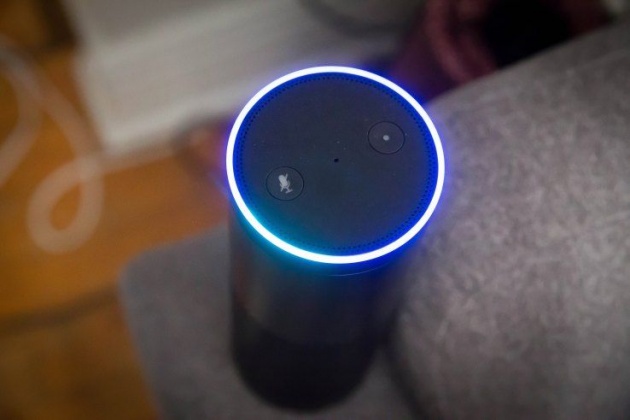
Voice-powered interfaces are the way forward. For me to make such a pronouncement is kind of ridiculous, as I’ve been an incredibly slow adopter of features like Google Now and Siri, based on the belief that using any kind of voice-powered computing platform in public is downright awkward even when speech recognition and natural language processing actually works. But after about a month with the Amazon Echo, I’m convinced.
Echo doesn’t nail recognition or have anywhere near a 100 percent success rate, and because of my home layout it strains to hear me when I’m also using my tabletop fan, but even these weaknesses don’t really detract from its overall usefulness. What the Echo accomplishes, basically, is enabling the kind of in-home general purpose computing experience that seems most natural – especially if you’ve been racing ahead to jump onto the smart home trend, but feeling like there’s an essential piece missing.
Echo’s basic informational functions are exactly what you need in the home – quick queries about measurements, unit conversions, the weather and random trivia is super useful, and something I’d often pull out the smartphone or tablet to check previously. Adding info to a shared grocery list, which you can accomplish thanks to IFTTT integration and apps like Evernote, is also super handy. But the smart home stuff, even in the limited for it currently appears, is what really makes the case for the voice-powered home.
Out of the box, Amazon Echo lets you control WeMo-enabled smart switches and Philips Hue lights. The controls are smart and granular, letting you control specific lights by name, or group devices for controlling more than one at once. With Hue, you can even tell Echo exactly how bright you want the light or light set to be. It’s amazing how much less friction this presents vs. using an app on your device, or even a quick setting accessible in just a single step via your device’s lock screen.
Amazon is rolling out continuous updates to its Echo platform to make it ever more useful, but it’s already apparent that the real opportunity will come when the companies that already own most of the rest of your computing experience start to play in the same space. Siri and Google Now already have a degree of always-on functionality, when devices are plugged into power for instance, or when you’ve allowed your computer to wait for the watchword. But where Echo falls down is when it can’t plug directly into services like your Gmail or iMessage, for instance, and that’s where the real excitement for this kind of interface lies.
Echo will remain a tremendous pal for my home computing, but it’s really just an appetizer for the main course – the same device with a direct, mainline connection to the services I’m already using to manage my data and communication on my phone, computer and tablet is going to take this kind of persistent voice-powered computing over the top, and make it a must-have for any modern home.



